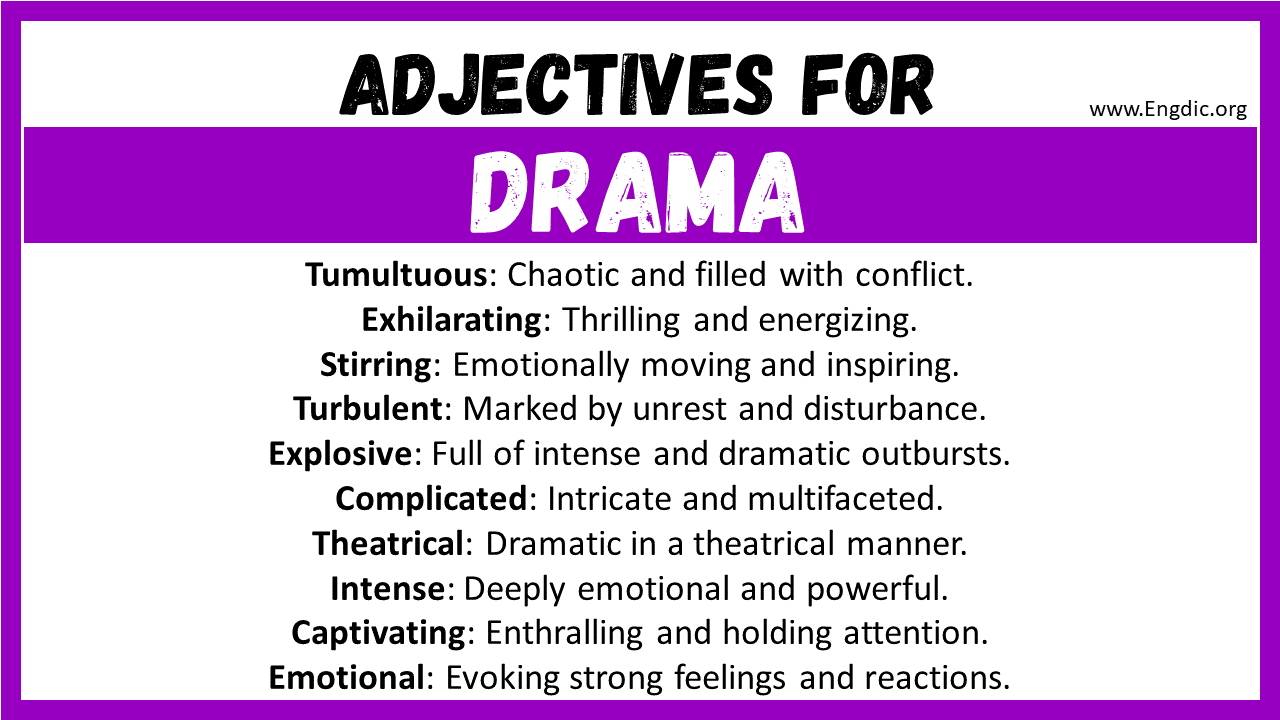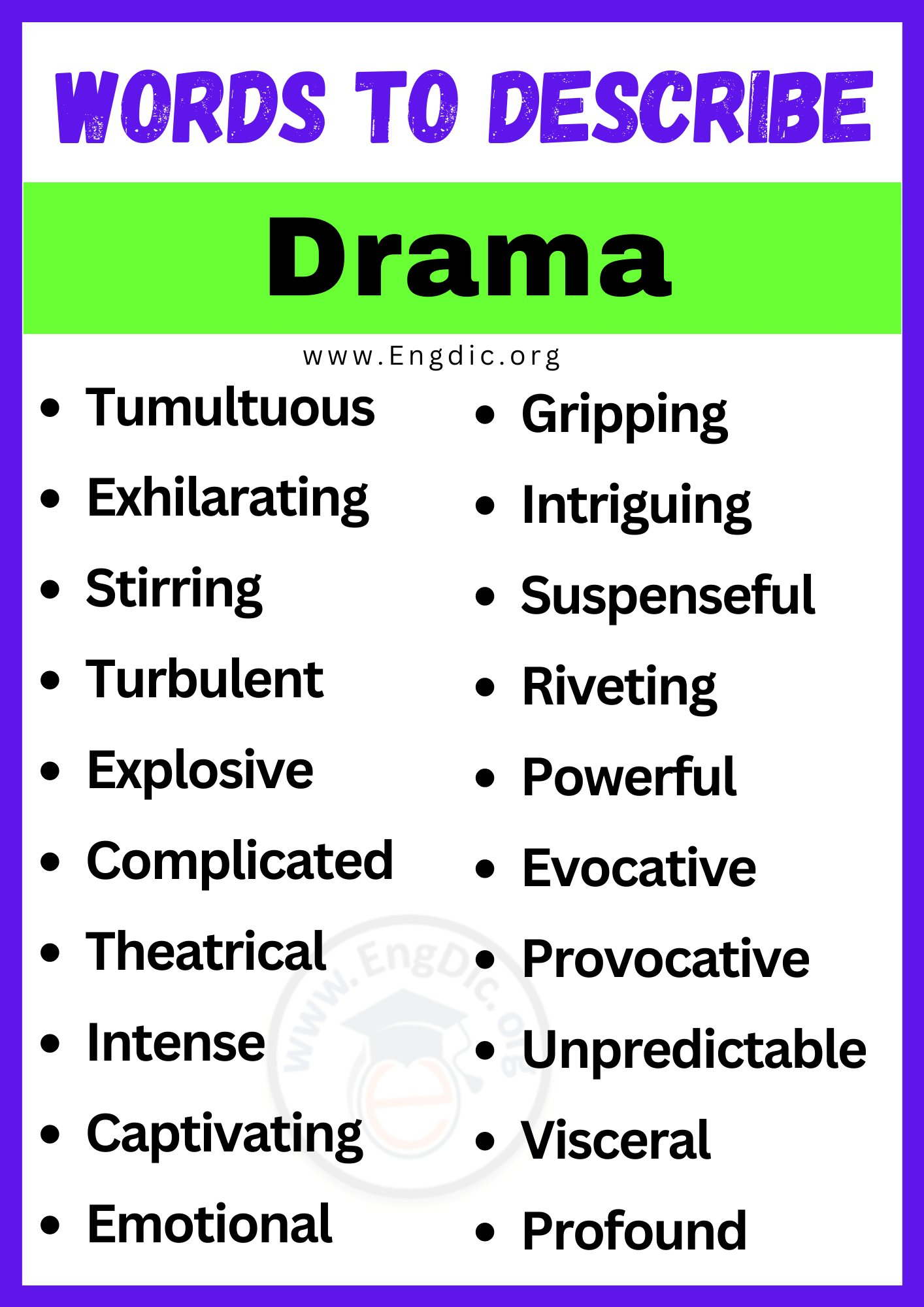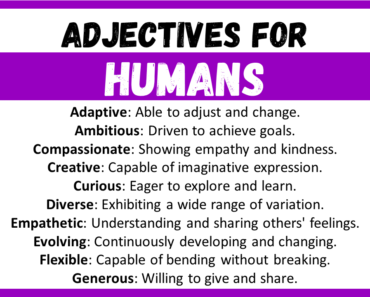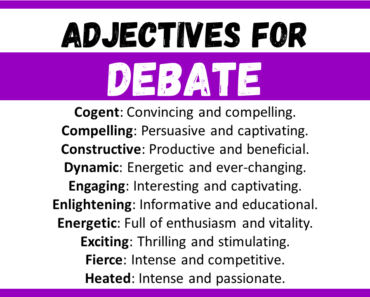Drama, in its simplest form, is the art of storytelling through intense emotions, conflicts, and compelling narratives. It takes us on a rollercoaster of feelings, leaving us captivated and invested in the characters’ lives. To truly capture the essence of drama, we often rely on carefully chosen words to evoke the right emotions. From “turbulent” to “tense,” “riveting” to “explosive,” the lexicon of drama encompasses a vast array of descriptive terms that vividly convey the intensity and excitement of the theatrical or literary experience.
Adjectives for Drama
Here are the 20 Most Popular adjectives for drama:
- Tumultuous
- Exhilarating
- Stirring
- Turbulent
- Explosive
- Complicated
- Theatrical
- Intense
- Captivating
- Emotional
- Gripping
- Intriguing
- Suspenseful
- Riveting
- Powerful
- Evocative
- Provocative
- Unpredictable
- Visceral
- Profound
Adjectives for Drama Performance:
- Intense
- Powerful
- Riveting
- Emotional
- Gripping
- Captivating
- Dynamic
- Compelling
- Electrifying
- Mesmerizing
Adjectives for Drama Queens:
- Histrionic
- Exaggerated
- Theatrical
- Melodramatic
- Attention-seeking
- Overemotional
- Flamboyant
- Excessive
- High-strung
- Diva-like
Adjectives for Drama Movies:
- Suspenseful
- Gripping
- Intriguing
- Emotional
- Compelling
- Thrilling
- Intense
- Poignant
- Riveting
- Gripping
Adjectives for Good Drama:
- Engrossing
- Thought-provoking
- Nuanced
- Authentic
- Compelling
- Impactful
- Well-crafted
- Moving
- Profound
- Gripping
Adjectives for Crime Drama:
- Gritty
- Suspenseful
- Dark
- Gripping
- Intriguing
- Intense
- Thrilling
- Compelling
- Atmospheric
- Edgy
Words to Describe Drama with Meanings
- Tumultuous: Chaotic and filled with conflict.
- Exhilarating: Thrilling and energizing.
- Stirring: Emotionally moving and inspiring.
- Turbulent: Marked by unrest and disturbance.
- Explosive: Full of intense and dramatic outbursts.
- Complicated: Intricate and multifaceted.
- Theatrical: Dramatic in a theatrical manner.
- Intense: Deeply emotional and powerful.
- Captivating: Enthralling and holding attention.
- Emotional: Evoking strong feelings and reactions.
- Gripping: Holding one’s interest firmly.
- Intriguing: Arousing curiosity and fascination.
- Suspenseful: Full of anticipation and tension.
- Riveting: Completely engrossing and compelling.
- Powerful: Having a profound impact and influence.
- Evocative: Eliciting strong emotions and memories.
- Provocative: Stimulating thought and discussion.
- Unpredictable: Full of surprises and unexpected turns.
- Visceral: Instinctive and deeply felt.
- Profound: Deeply meaningful and significant.
Example Sentences for Drama Adjectives
- The tumultuous argument shook the entire room.
- The roller coaster ride was exhilarating!
- Her speech was stirring and moved the audience.
- The political climate became turbulent before the election.
- The explosive confrontation ended in tears.
- Their relationship is complicated and filled with ups and downs.
- The play’s theatrical performance left the audience in awe.
- The movie had an intense and gripping storyline.
- The novel was so captivating that I couldn’t put it down.
- The tragic ending left me emotional and teary-eyed.
- The gripping mystery novel kept me guessing until the end.
- The intriguing plot twist took everyone by surprise.
- The suspenseful scene had me on the edge of my seat.
- The documentary was absolutely riveting from start to finish.
- The actor delivered a powerful monologue that left the audience speechless.
- The artwork was evocative and stirred deep emotions.
- Her controversial statement was provocative and sparked a heated debate.
- The outcome of the game was unpredictable until the last minute.
- The movie had a visceral impact, leaving me breathless.
- The philosopher’s words were profound and thought-provoking.
Explore More Words:
FAQ’s
How to describe drama in writing?
Drama in writing can be described by capturing intense emotions, conflicts, and compelling narratives that engage readers and evoke a strong emotional response.
What is the oldest drama in the world?
The oldest known drama in the world is the ancient Greek play “The Persians” by Aeschylus, written in 472 BCE.
What are the 4 types of drama?
The four types of drama are comedy, tragedy, tragicomedy, and melodrama, each distinguished by their unique characteristics and emotional tones.








